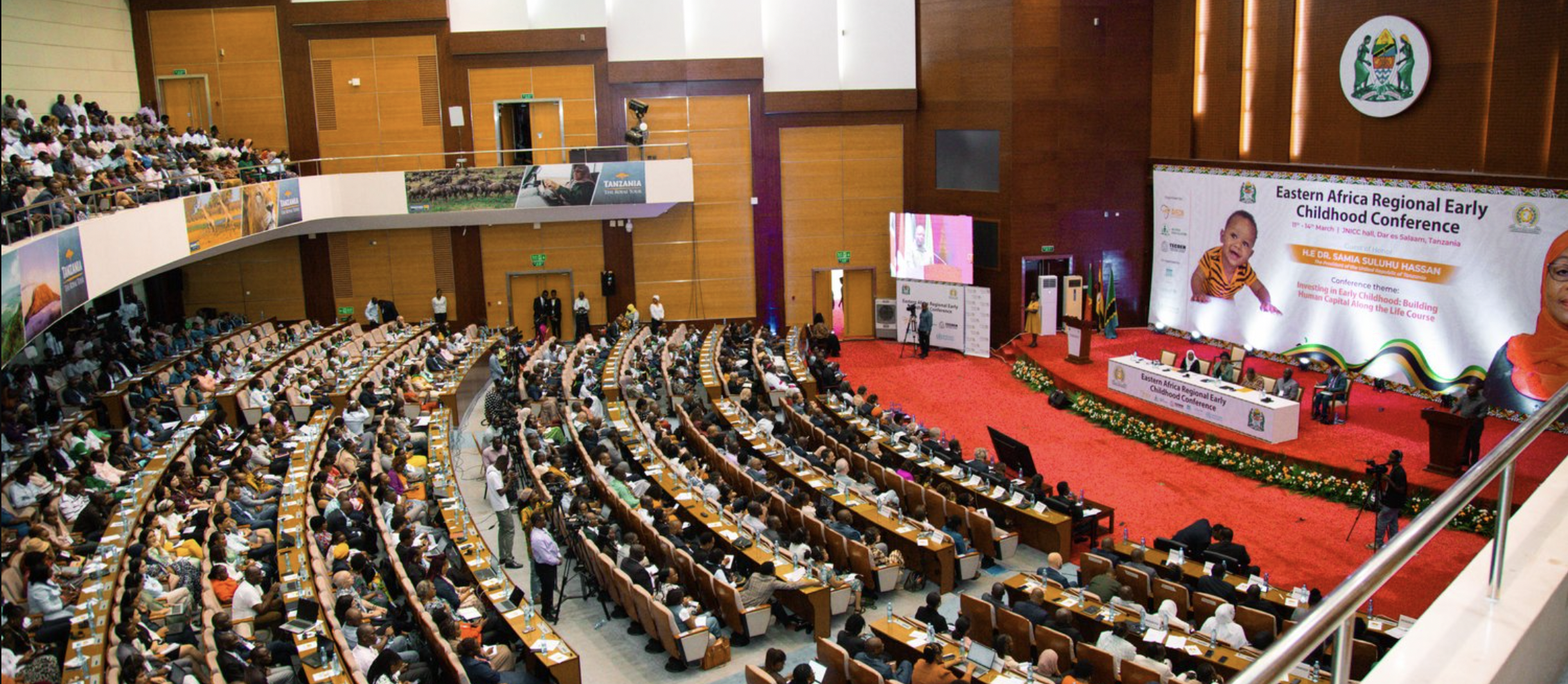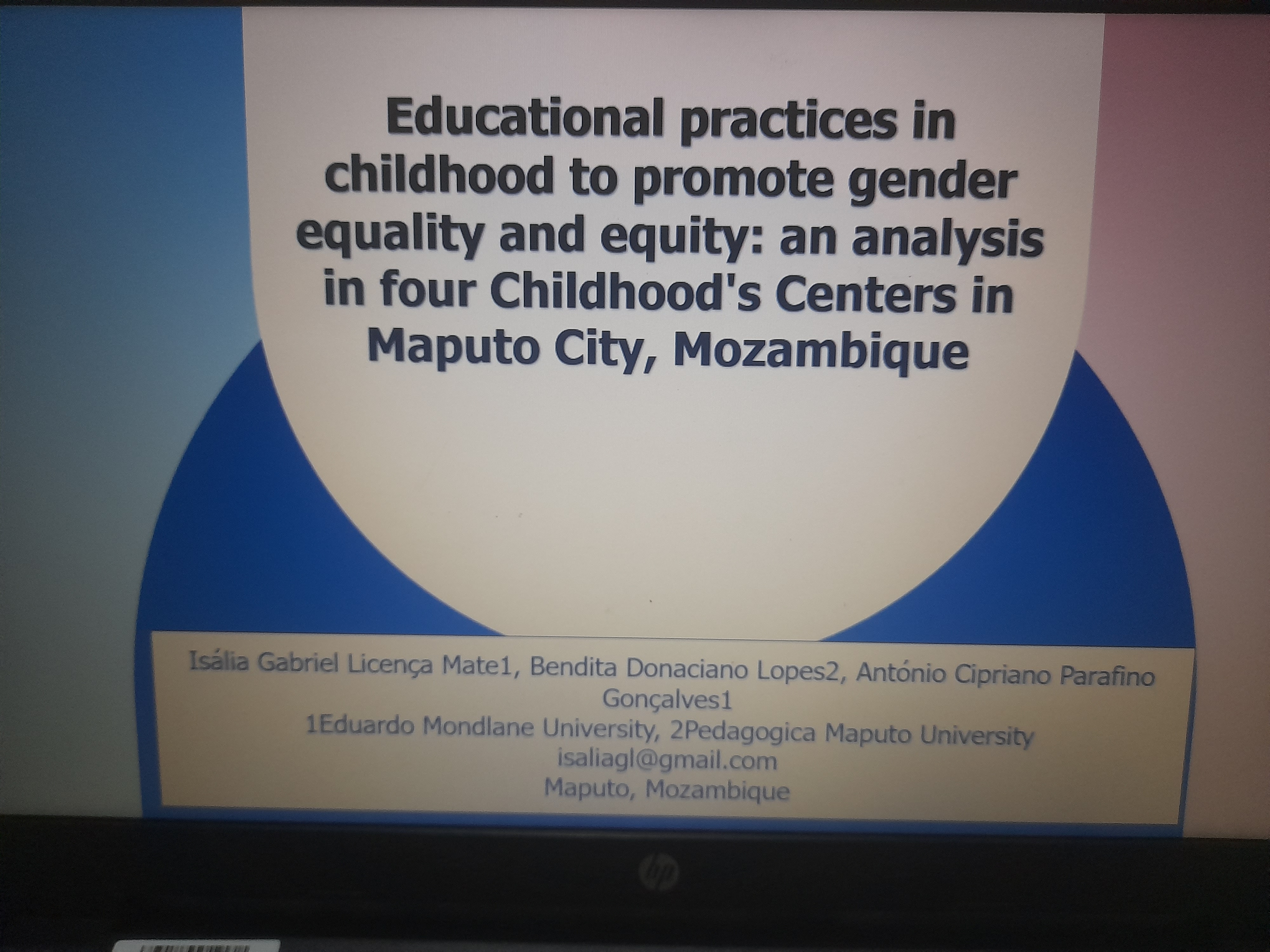Participating in the Eastern Africa Regional Early Childhood Conference: Sharing, Learning and Networking
This is the first of our ten-part blog series by African Early Childhood Development (ECD) researchers.
Written by Isàlia Gabriel Licença Mate, Lecturer, Researcher and PhD candidate at the Faculty of Education, Eduardo Mondlane University, Mozambique.

Investment in Early Childhood Development (ECD) is considered the most important tool to empower children, the future adults of tomorrow, while also combating the poverty that plagues African countries.
The interest in investing in ECD by African governments is recent and extremely necessary and is an issue that still requires a lot of advocacy, as well as research to enure this investment is based on data and evidence. The Eastern Africa Regional Early Childhood Conference (EARECC) was one of the actions helping to visualise what is being done and the advances and challenges involved.
With the various partners, policymakers, donors, researchers, and programme implementers from across Africa in attendance, it was possible to discuss the current state of ECD, as well as the challenges being faced – through exhibitions, presentations, and training.
What is being done
There is significant work being done by way of policies, research, and implementation through intervention programmes, albeit with little economic investment.
The governments of participating African countries and institutions, such as the African Union, World Bank, UNICEF, Conrad N. Hilton Foundation, among others, shared policies, strategic plans and programmes designed to boost investment, actions, and research in ECD. It was remarkable to see this effort by countries to promote investment in this area, even if on a small scale.
On the other hand, it was recognised that while donors and partners have made funds available to support the implementation of programmes and research, these funds remain insufficient.

Additionally, this funding often does not take local needs into consideration, but rather comes with various impositions, resulting in it being inefficient.
The EARECC was impactful, as it illustrated the state of ECD across the participating African countries. There was sharing of actions that are being developed by everyone, including partners in favour of ECD such as policies, programmes, research, and interventions. Various topics such as the inclusion of children with special needs, care for caregivers, and community involvement were covered. During one of the sessions, Wangeci Kihara shared her negative experience with postpartum depression, which led to her creating ‘Mothership Village’, an organisation created to help mothers, particularly new mothers.
This conference provided guidance for governments, donors, and stakeholders:
Country governments
The directives that were shared during this event include the creation of conditions to demonstrate commitment and allow for more investment in ECD. These conditions involve the design of inclusive policies and other tools that stimulate and direct investment and interventions in favour of ECD. Investment in ECD by the countries themselves needs to also be increased, as current funding is considered insignificant based on demand.
Donors and partners
During the discussions, there was frequent mention of the lack of funding and sufficient resources for the various ECD actions. Therefore, there is a strong need for investment in countries so they can act on ECD in a comprehensive and effective way, as they recognise its relevance. This investment must prioritise local needs to find solutions together.
Intervening actors
For interveners or implementers, it was pointed out that they need to carry out more research and disseminate its results, to properly inform political decisions and intervention actions, as it is crucial to act based on evidence. The issue of community involvement in interventions was also addressed; advocacy for more investment and more comprehensive interventions; monitoring actions so that they are effective; the need for multisectoral actions as a key factor for the success of interventions; as well as that the actions promote inclusion, mental health, and care for the caregiver.
My Takeways
All in all, the conference exceeded my expectations, as it allowed me to learn and share experiences from other countries about policies, plans, research, programmes and actions that are being carried out in ECD, as well as reflect on what is being done in my country.
This experience made me feel confident and motivated me to take further action in my country.
ESSA and the Research for Equitable Access and Learning (REAL) Centre, University of Cambridge, are currently working in partnership on an Early Childhood Development (ECD) project with funding from the Conrad N. Hilton Foundation. The project focuses on understanding the ecosystem of ECD researchers and their needs in Ghana, Kenya, Tanzania, and Uganda (with desk-based research for Mozambique).
As part of this project, we sponsored ten ECD researchers to attend the Eastern Africa Regional Early Childhood Conference (EARECC) in Tanzania in March 2024 to give them the opportunity to share their work, network and explore research collaborations.

